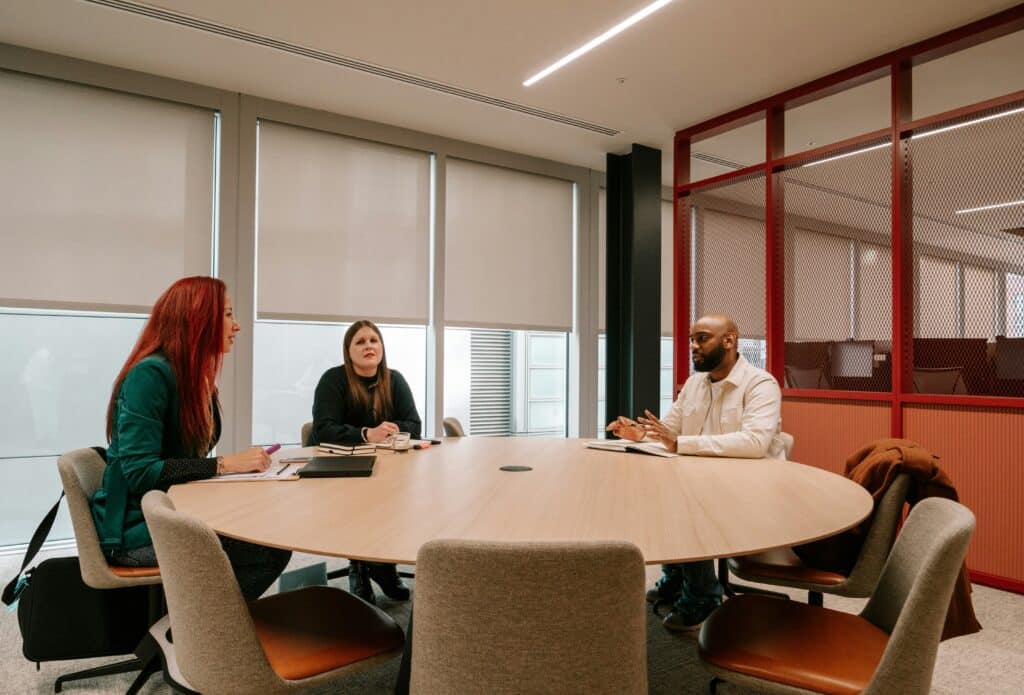Mediation is often a voluntary form of alternative dispute resolution that does not focus on fault determination. Instead, it is a valuable tool available to parties seeking to save on costs and time and who are interested in reaching a confidential, negotiated settlement to resolve an ongoing dispute. However, all parties must arrive at the mediation prepared and open to making concessions to maximize their chances of success. So, how can counsel and clients make the most out of their mediation?
Dina Mejalli-Willis’ Top 5 Mediation Tips
Willis Business Law offers comprehensive mediation services provided by managing partner Dina Mejalli-Willis. Dina draws from her years of experience in private practice and mediation to ensure that mediation sessions run smoothly and efficiently. The following are Dina’s top five tips on how to make the most out of your mediation:
1. Prepare, prepare and prepare some more
It is essential for counsel to prepare for and treat the mediation just as they would any other case proceeding through litigation. Both counsel and their clients should have a clear line of communication leading up to mediation. This allows counsel to receive their client’s instructions and, therefore, arrive better prepared to address potential sticking points at the session. Preparation ensures counsel have a comprehensive understanding of the case and better understand their client’s interests and needs, which is particularly beneficial in time-limited mediation.
It is crucial for lawyers to appropriately manage their client’s expectations regarding the mediation process and potential outcomes. It is important to have frank conversations with clients about the merits and risks of their position. Clients should also have an understanding of the informality and confidential nature of a mediation. Parties who arrive at mediation prepared to reach an agreement often see successful outcomes.
If the case does not settle at mediation, the parties often leave with a better understanding of the issues and the merits of their arguments. This preparation will also help counsel prepare for the subsequent steps in the litigation process.
2. Keep your mediation briefs succinct
Preparing a strong and compelling mediation brief is essential. However, ensuring that the mediation brief is succinct is just as important. Having undertaken necessary research and being able to hone in on the critical issues and relevant arguments makes a mediation brief easily digestible. It not only benefits opposing counsel in clearly understanding the other party’s arguments, but it also helps the mediator facilitate the mediation, by ensuring that key issues are addressed, and creating opportunities for resolution.
Mediation briefs are the only information that a mediator sees before arriving at the mediation. Therefore, drafting a mediation brief highlighting strong arguments in an easy-to-read format along with supporting evidence, allows the mediator to understand the contentious issues and assess the strengths of each party’s position.
3. Disclose important information early
To come to the table prepared and willing to negotiate, each party must know enough to be comfortable and trusting in the mediation process. Therefore, the parties must exchange pertinent information early and provide their mediation briefs as soon as possible. Not only does this aid the parties in understanding the other’s position, but it also allows sufficient time for the mediator to prepare for the mediation.
Additionally, counsel must be aware that when dealing with certain parties, such as insurance companies, they must allow sufficient time for their brief and expert reports to follow the chain of command for the purpose of obtaining the appropriate authority to settle the dispute. If the individuals who can provide authority to make settlement offers have insufficient time to review the opposing party’s documentation, the mediation can theoretically be over before it starts resulting in waste of time and money to all involved.
4. Arrive with an open mind
Despite adequate preparation by the parties, mediation can easily fail if a party is not prepared to make reasonable concessions. Therefore, it is essential to arrive at a mediation with an open mind and ready to make and consider reasonable offers and contributions. Parties who come in good faith and are prepared to take action to resolve outstanding issues can easily be deterred when the other party has already decided that they are not prepared to move from their position.
It is important to make the most of early opportunities to settle, including at mediation. During these times, all of the parties are thinking about the case and are seeking to resolve the dispute in a safe and neutral setting. Settling a case early provides time and financial benefits and eliminates a party’s risk as the case progresses toward trial. Mediation encourages the parties to be self-aware and look inward for possible problem-solving solutions. Also, it allows for a safe space to speak and mend relationships that may have been damaged in the dispute.
5. Use the mediator to your advantage
While it may seem obvious, parties often fail to use the mediator to their advantage. Mediation is a way to create a forum between the disputing parties to allow for open discussions regarding the issues and understand the reasons behind each party’s position. At mediation, allowing the client to speak to the mediator, express their needs and hesitations, and gain a new perspective on their position can be essential. To ensure that these discussions and settlement opportunities are maximized, the mediator will often encourage parties to be creative in coming up with unique resolutions that are mutually satisfactory.
Mediators can speak to various strengths and weaknesses of arguments and provide candid insight as to how they think the matter may be decided at trial. While the mediator does not make decisions for the parties, their input can be persuasive. For these reasons, choosing a mediator with knowledge and experience on the relevant subject is beneficial.
Schedule Your Mediation With Dina Mejalli-Willis at Willis Business Law in Windsor-Essex County
Willis Business Law proudly offers mediation services provided by managing partner Dina Mejalli-Willis. In her role as a mediator, Dina helps parties facilitate cost-effective, timely, and risk-free discussions to resolve various disputes. To learn more about our comprehensive mediation services, contact Dina Mejalli-Willis or schedule your mediation session using her online scheduling calendar. To contact Willis Business Law, complete our online form or call our office at (519) 945-5470.




